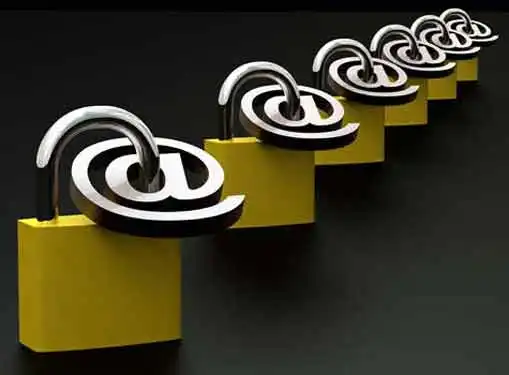Business Strategies
Cybersquatting
Written by Gregory Steffens for Gaebler Ventures
Over the past two decades, firms have discovered the immense commercial opportunities of the internet. Premium domain names are a vital for the success of a company's website and online business. However, individuals and organizations known as cybersquatters specialize in purchasing premium domain names in order to sell them to companies for large profits. This article introduces cybersquatters, their tactics, and methods for companies to legally fight against them.
To fully grasp the techniques used by cybersquatters, one must understand the process of registering internet domain names.

In November of 1998, the Internet Corporation for Assigned Names and Numbers (ICANN), a then newly formed non-profit corporation, was granted the responsibility of managing ownership of the Domain System. To register a domain name in the United States, one must file an application with one of ICANN's Accredited Registrars.
Once an application is received, the registrars register the domain names automatically through the use of a master database. The databases do little else than check for the availability of the certain domain name. If it is not already owned and the applicant submits an application and fee, he or she becomes owner of that website.
The only rule involves assigning domain names on a first come, first serve basis since many different organizations may desire the same domain name. However, the registrars do not check if applicants are associated with the companies that the domain names reference.
Therefore, if "walmart.com" was available, someone with no association to Wal-Mart can purchase the domain name. Because of this lack of regulation, individuals and organizations developed methods to profit from cybersquatting.
Cybersquatting
Cybersquatting involves individuals or companies registering domain names representing existing brand names without legitimate claims to use those trademarks. Typically, cybersquatters intend to sell the domain names to the owners of the trademarks for a large profit. This tactic was prevalent during the emerging years of the internet when companies did not realize its vast commercial opportunities. Hertz, Avon, and Panasonic were all early victims of Cybersquatting and joined many Fortune 500 companies that paid as much as $15,000 to purchase their brand domain names. To put this in perspective, registering a domain name can cost as little as six dollars annually.
In response to cybersquatting, the United States Congress passed the Anti-Cybersquatting Consumer Protection Act in 1999. The legislation allows for companies to sue cybersquatters in federal court if the trademark name was distinct or famous when the cybersquatter registered it as a domain name, the domain name is identical or similar to the trademark name, and the cybersquatter registered the domain name in bad faith. The court can grant companies ownership of the domain name as well as monetary damages.
Moreover, if firms do not want to go through the long, expensive process of filing a lawsuit, they can use ICANN's Uniform Dispute Resolution Policy (UDRP), which was created to combat such issues as cybersquatting. Instead of a trial, firms would initiate an arbitration process to resolve cybersquatting disputes.
Because of these two legal recourses, cybersquatting has dramatically decreased in the past decade. However, a new type of cybersquatting, called typosquatting, has developed and adapted around these policies.
If an entrepreneur wants to use a particular domain name, he or she can easily find out if the website is owned by a cybersquatter.
First, just simply type the domain name into the address bar and see if the website appears to be legitimate. The website probably is not held by a cybersquatter if it seems to be functional and reasonably related to the subject matter of the domain name.
However, the entrepreneur may have a case for trademark infringement if the domain name uses his or her established brand name. But, if the internet browser returns messages like "cannot find server" or "site under construction" or the website lacks any relationship with the subject matter of the domain name, the site could be owned by a cybersquatter.
Even though these results point to the likelihood of cybersquatting, other reasonable explanations exist for their occurrence. For instance, a "site under construction" message could simply mean that the owner is developing a legitimate website. Since registrants reserve domain names for two years, several months can elapse before an owner launches a genuine site.
To be positive about the ownership of the site, several websites exist that allow entrepreneurs to discover the owners of certain domain names. By contacting the holders, entrepreneurs can determine if the owner has legitimate intentions for the site or if he or she will sell it at a reasonable price.
One such site includes "whois.net" that provides the name and address of domain name owners, lists variations of the domain name that are available, and provides similar domain names for sale, most likely from cybersquatters.
Even if firms discover their desired domain names are held by cybersquatters, purchasing the website may be their best option. Paying off the cybersquatter could be the quickest and cheapest option compared to legal actions like lawsuits or arbitrations.
Although companies can be awarded legal costs and attorney fees if they win, the discretion lies solely with the judge hearing the case. Fees and expenses can rise far above the cybersquatter's asking price, so the company unnecessarily loses time and money if it is not awarded a judgment covering these costs.
Gregory Steffens is a talented writer with a strong interest in business strategy and strategic management. He is currently completing his MBA degree, with an emphasis in finance, at the University of Missouri.
Share this article
Additional Resources for Entrepreneurs


Conversation Board
What's your take on cybersquatting? We welcome all on-topic comments.